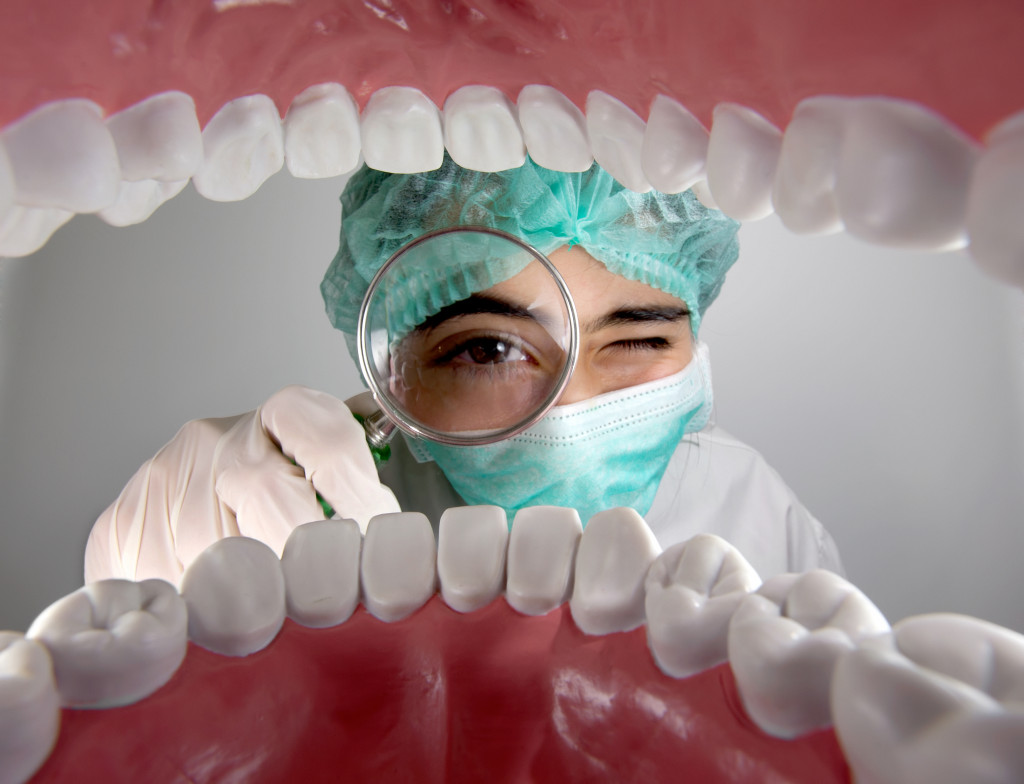- An impacted tooth is a tooth that has not fully erupted and is unable to grow properly into its normal position in the mouth.
- Common symptoms of an impacted tooth include pain or discomfort in the affected area and swelling or redness around the area.
- Treatment options for an impacted tooth include a thorough oral exam and specialized techniques.
- An impacted tooth can cause pain, infections, misalignment of the teeth, and psychological effects.
Dental problems come in different forms and shapes, and one of them is an impacted tooth. It occurs when a tooth grows in the wrong location, causing dental issues that warrant quick intervention. If left unaddressed, it can cause various problems, affecting your well-being and productivity.
This post highlights how an impacted tooth affects your quality of life, signs to look out for, the ramifications, and treatment options. So, grab a glass of water and read along.
What is an Impacted Tooth
Have you ever heard someone say that they have an impacted tooth? Chances are, you have, but you might not know precisely what that means. An impacted tooth is a tooth that has not fully erupted and is unable to grow properly into its normal position in the mouth. This issue can cause a range of problems, from discomfort to infections.
An impacted tooth can occur for a few reasons – sometimes, it’s due to overcrowding in the mouth, which prevents the tooth from having enough space to grow. Other times, the tooth may be angled improperly, which can cause it to become stuck or blocked. In either case, an impacted tooth can cause pain, irritation, and even infections. It’s important to recognize the symptoms early and take action to address the issue.
One of the most common symptoms of an impacted tooth is pain or discomfort in the affected area of the mouth. This can range from a mild ache to a sharp, shooting pain. You may also notice swelling or redness around the area or even a small bump on the gum line. If an infection develops, you may experience additional symptoms such as fever, bad breath, or a foul taste in your mouth.
Treatment Options

The good news is that an impacted tooth can be addressed with proper diagnosis and treatment. The first step is a thorough oral exam by a qualified dental professional who will assess your symptoms and determine the best course of action.
Then, depending on the severity of the impact, you may need to visit an experienced dental oral surgeon who can perform more specialized techniques such as root canal therapy, wisdom tooth extraction, or dental implants. After the procedure, following your dentist’s post-care instructions is essential to reduce the risk of infection and promote proper healing.
Effects of an Impacted Tooth
As mentioned, an impacted tooth can cause many problems that affect your quality of life. Here are some of them:
Pain and Discomfort
An impacted tooth can cause pain and discomfort, especially when you chew or talk. The pain may be sporadic or constant and, if left unaddressed, can worsen over time. The discomfort can compromise your dental functions, making it difficult to eat, speak clearly, or sleep comfortably.
Infections and Swelling
An impacted tooth can create space for bacteria to thrive, leading to infections of the gum or tooth decay. The disease can cause swelling, redness, and tenderness, making touching or moving your jaws difficult. The node can escalate and result in a condition known as an abscess, which can threaten your overall health if not promptly treated.
Misalignment of Other Teeth
An impacted tooth can exert pressure on the adjacent teeth, causing them to shift, bend or misalign. This can compromise your dental structure, leading to more dental issues like tooth crowding, crooked teeth, or bite problems. The misalignment can create room for food particles and bacteria to accumulate, increasing the risk of tooth decay, gum disease, and bad breath.
Psychological Effects

An impacted tooth can have a psychological impact by affecting your confidence. A visible impacted tooth can make you feel self-conscious and reduce your self-esteem. You may feel embarrassed to smile, talk or eat in front of people, leading to social isolation and depression. Furthermore, the pain and discomfort can affect your mood, making you irritable, frustrated, or anxious.
The Bottom Line
In summary, an impacted tooth can cause various dental problems that affect your quality of life. It can cause pain, infections, misalignment of the teeth, and psychological effects that compromise your well-being and productivity. The best way to prevent and treat an impacted tooth is by maintaining good oral hygiene, getting regular dental checkups, and seeking prompt intervention if you notice any symptoms. Remember, prevention is always better than cure, so take care of your dental health and always smile.
